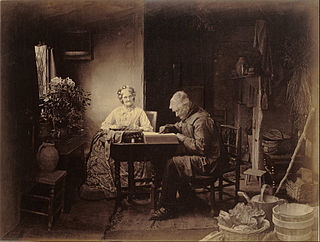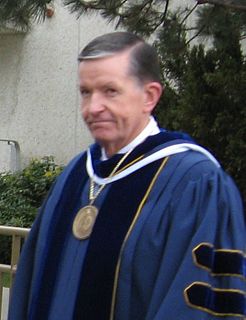A Quote by Tennessee Williams
It is only in his work that an artist can find reality and satisfaction, for the actual world is less intense than the world of his invention and consequently his life, without recourse to violent disorder, does not seem very substantial. The right condition for him is that in which his work in not only convenient but unavoidable.
Related Quotes
No man is happier than he who loves and fulfills that particular work for the world which falls to his share. Even though the full understanding of his work, and of its ultimate value, may not be present with him; if he but love it--always assuming that his conscience approves--it brings an abounding satisfaction.
The books of the great scientists are gathering dust on the shelves of learned libraries. And rightly so. The scientist addresses an infinitesimal audience of fellow composers. His message is not devoid of universality but its universality is disembodied and anonymous. While the artist's communication is linked forever with its original form, that of the scientist is modified, amplified, fused with the ideas and results of others and melts into the stream of knowledge and ideas which forms our culture. The scientist has in common with the artist only this: that he can find no better retreat from the world than his work and also no stronger link with the world than his work.
The master in the art of living makes little distinction between his work and his play, his labor and his leisure, his mind and his body, his information and his recreation, his love and his religion. He hardly knows which is which. He simply pursues his vision of excellence at whatever he does, leaving others to decide whether he is working or playing. To him he's always doing both.
Jesus Christ was the only one capable of performing the magnificent Atonement because He was the only perfect man and the Only Begotten Son of God the Father. He received His commission for this essential work from His Father before the world was established. His perfect mortal life devoid of sin, the shedding of His blood, His suffering in the garden and upon the cross, His voluntary death, and the Resurrection of His body from the tomb made possible a full Atonement for people of every generation and time.
Man is more than his environment. It is from the innate quality of the Spirit in him, his inner storehouse, that he draws those ideas, his intuitions, which unify his perceptions of the external world instantaneously with a value which is qualitative and not quantitative, and which he embodies in the works of his culture - those achievements which belong not only to one particular time but to all times, and mark the path of his upward progress.
The fact that labour is external to the worker, i.e., it does not belong to his intrinsic nature; that in his work, therefore he does not affirm himself but denies himself, does not feel content but unhappy, does not develop freely his physical and mental energy but mortifies his body and his mind. The worker therefore only feels himself outside his work, and in his work feels outside himself.
The young man who addresses himself in stern earnest to organizing his life-his habits, his associations, his reading, his study, his work-stands far more chance of rising to a position affording him opportunity to exercise his organizing abilities than the fellow who dawdles along without chart or compass, without plan or purpose, without self-improvement and self-discipline.
It is a mistake to talk about the artist looking for his subject. In fact, the subject grows within him like a fruit and begins to demand expression. It is like childbirth. The poet has nothing to be proud of. He is not master of the situation, but a servant. Creative work is his only possible form of existence, and his every work is like a deed he has no power to annul. For him to be aware that the sequence of such deeds is due and ripe, that it lies in the very nature of things, he has to have faith in the idea; for only faith interlocks the system of images for which read system of life.
Too often in the past, we have thought of the artist as an idler and dilettante and of the lover of arts as somehow sissy and effete. We have done both an injustice. The life of the artist is, in relation to his work, stern and lonely. He has labored hard, often amid deprivation, to perfect his skill. He has turned aside from quick success in order to strip his vision of everything secondary or cheapening. His working life is marked by intense application and intense discipline.



































